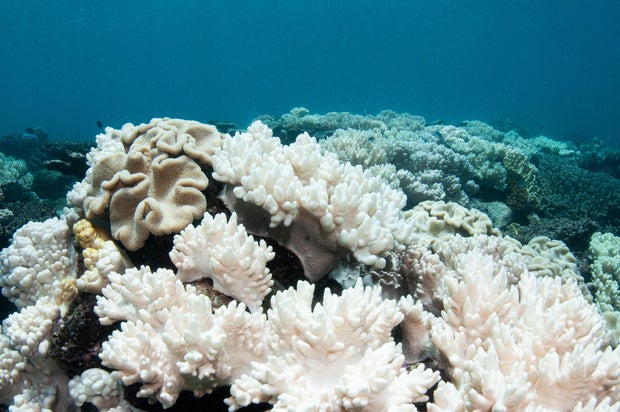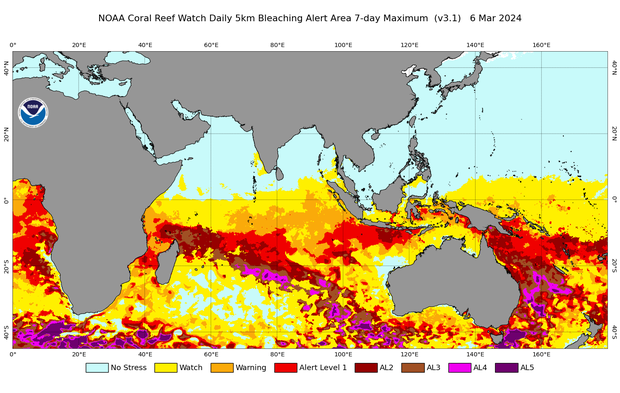Parts of the Great Barrier Reef are dying at record rates, alarmed researchers say; “worst fears” are confirmed

Parts of the Great Barrier Reef have suffered the highest coral mortality on record, an Australian study showed on Tuesday, and scientists fear the rest may face the same fate.
The Australian Institute of Marine Science said a study of 12 reefs found 72 percent of the coral deaths were due to summer coral deaths. mass bleaching, two hurricanes, and floods.
In another northern part of the ocean, about a third of hard corals died, the “biggest annual decline” in 39 years of government monitoring, the agency said.
Brett Monroe Garner/Getty Images
The Great Barrier Reef, often referred to as the world’s largest structure, is a 1,400-mile stretch of coral that is home to a wide variety of organisms.
But repeated incidents of mass extinctions have threatened to rob the tourist card of its magic, turning the once-blooming coral reef a sickly shade of white.
Heat occurs when the water temperature rises and the coral expels tiny algae, known as zooxanthellae, to survive.
If high temperatures persist, the coral can eventually turn white and die.
This year was already confirmed as the fifth mass extinction in the water in the last eight years.
NOAA Coral Reef Watch
But the latest study also found a fast-growing species of coral — known as acropora — suffered a high mortality rate.
This coral is fast growing, but it is the first to bleach.
Lead researcher Mike Emslie told public broadcaster ABC that last summer was “one of the worst events” for the entire Great Barrier Reef, with heat stress levels exceeding previous events.
“These are the worst impacts. This is a huge loss,” he said.
The head of oceans at the World Wildlife Fund-Australia, Richard Leck, said the first study confirmed his “worst fears.”
“The Great Barrier Reef can bounce back but there are limits to its resilience,” he said. “It can’t be beaten like this over and over again. We’re fast approaching where we’re going to be.”
Leck added that the area surveyed is “relatively small” and fears that when a full report is released next year “the same death rates will be seen.”
He said the findings reinforced Australia’s need to commit to reducing emissions by at least 90 per cent below 2005 levels by 2035 and moving away from fossil fuels.
The country is one of the world’s largest exporters of natural gas and coal and has recently set goals to become net neutral.
Source link





